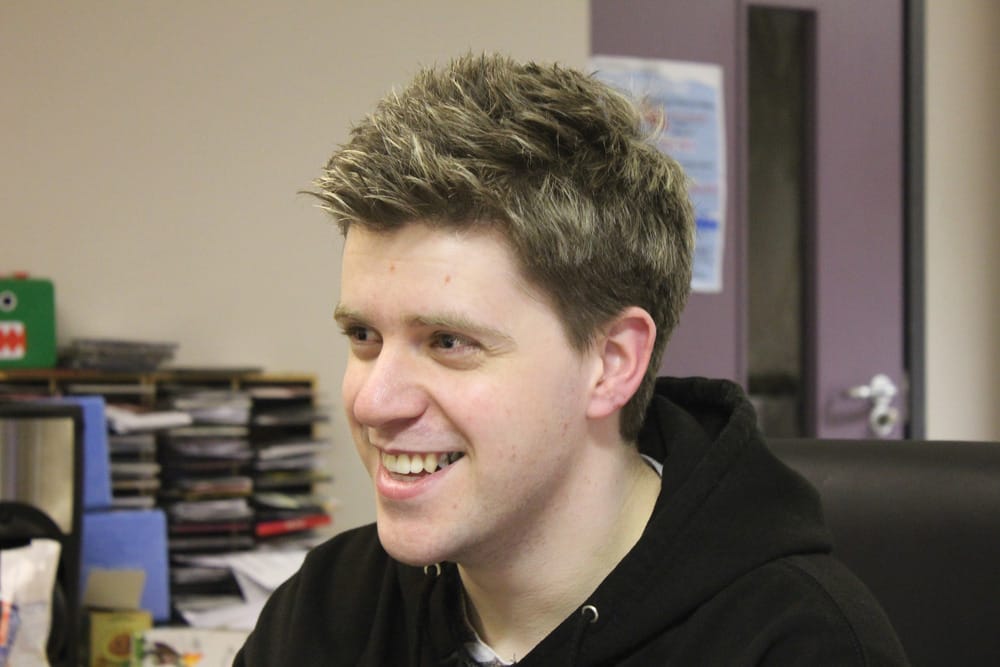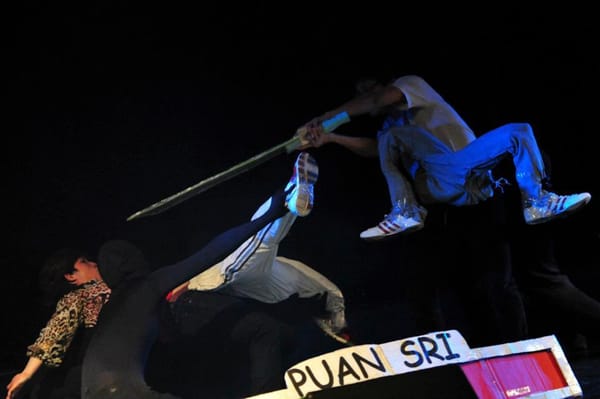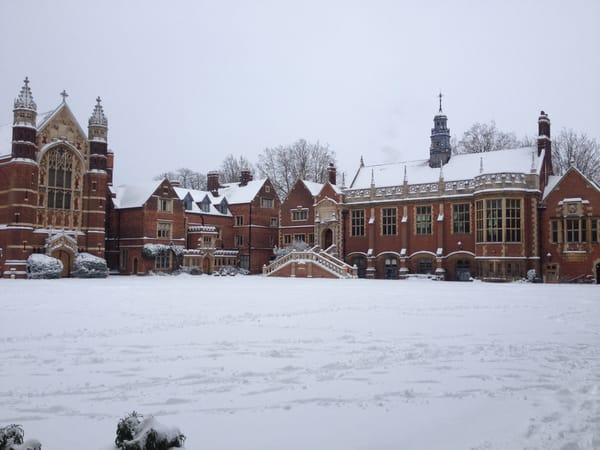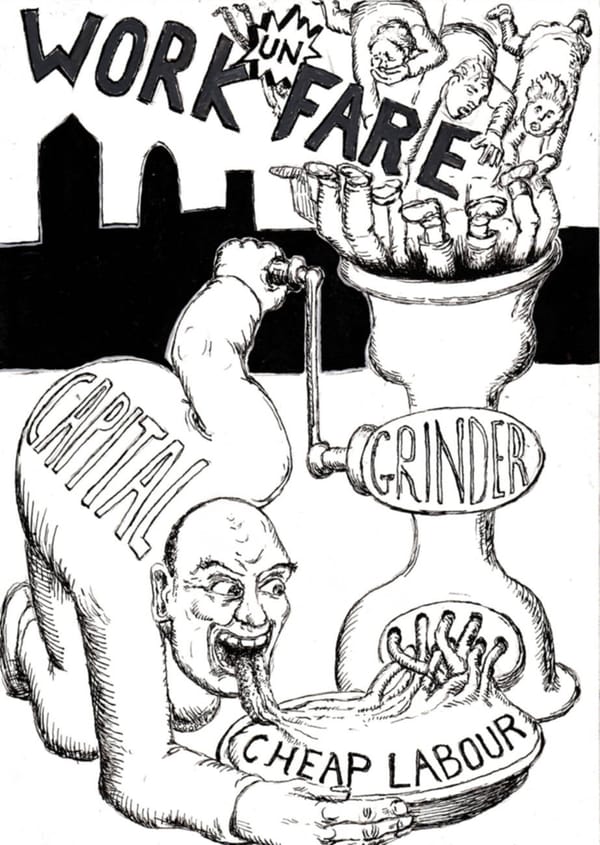A year in office with the Imperial College Union President Scott Heath
Felix interviews Union President Scott Heath about another year of significant changes: to higher education and to Imperial College itself

Felix: What has been the highlight of your year? Scott: There really have been too many to just single out one. My more ‘jovial’ highlights are going to the British Grand Prix (courtesy of Santander Bank and declared to Council); visiting Aachen for the IDEAListic conference and getting to interact with our European counterparts; attending meetings with other Sus from the Russell Group and being invited to a parliamentary roundtable discussion.
On the more serious notes I would say that receiving direct confirmation from the Government that all the hard work we put in to our White Paper Response in the summer was fruitful was a big highlight. We suggested that they drop the proposals to penalise students that wanted to repay their student loans early and they listened!
We were quoted as one of three Student Organisations to input, the other two being the NUS and the Open University Student Association.
Furthermore I am very proud that we have made the brave move to work with other London Unions to create the London Student Manifesto. This is easily the first time since we left ULU we have worked so closely with other SUs in London.
I can also say that our Freshers’ Week was very successful and great experience – even if I did give 18 talks in four days!
I feel confident in saying that I have achieved far more beneficial things for the students of Imperial College than my manifesto points would ever have done
F: What have you been most satisfied with during your time in the role? S: The performance of the entire team; both the staff and Sabbaticals. We have done some amazing things in the year so far and it has only been possible with the support of everyone and the great team dynamic we have.
The NSS Response which we wrote as a guide to improving the student experience has had a huge effect, changing policy in the College, triggering committees to creating working groups and really emphasising what students need to make their time here better.
I have also managed to increase the representative power of the Union by securing us seats on more committees and making it regular for the Union to meet the Principles of Faculties. I have also secured confirmation that the Union will participate in the processes to select the next Rector and Pro-Rector (Education).
This year we even received an invite to the Rector’s Away Day for the first time in our history.
F: What have been least satisfied with during your time in the role? S: Most of the time I that I have been dissatisfied it has been with the College. Last year there were large amounts of negative feeling towards College Management due to the Life Sciences restructure. We had all expected that this would have shown the College the importance of considering student opinions and the necessity of providing greater consultation. However it isn’t too hard to see that this is not the case. Look at the Holland Club. If the College had announced they were going to give a £4m make over to the venue very few people would have been concerned. However by keeping all plans undercover and disclosing as little as possible they have created an even bigger air of suspicion about their activities.
F: Do you feel at all disconnected from the student body after a year in the role? S: If I am completely honest I feel the absolute opposite. I think I now know an Undergraduate student in every department, have access to someone in every year group and, due to my age, have friends doing PhDs. I even live with the first year students in Wilkinson Hall. And it’s not like I hide in my room and curse their untidiness. I go out for drinks with them; we cook in the kitchen together; watch movies and TV, etc. I even went on the Halls trip to Belgium. And I really do find this really useful, because we end up talking about their courses, what the Union does, etc. I feel like I understand more about the 1st year courses than I did when I was a Fresher myself.
F: How have you delivered on your manifesto points so far? S: One of the first things you discover when you take office is that Manifesto points are easy to write but difficult to achieve. However I think it is fair to say I did choose a large selection of deliverable aims. I said from the onset that I wanted to complete a Guinness World Record, the initial thought being the World’s Largest Jagertrain. But as you can imagine the negative press, and sheer cost, that this event could cause did make it decided to change tack. I can, however, tell you it would take 1,548 or more jagerbombs to win. Instead I have decided to work with College Outreach to try to break the more achievable ‘World’s Largest Chemistry Lesson.’ Due to an irritating thing called the Olympics it seems this will be able to plan it this year but not do it until next academic year.
As for other pledges, if you go to the Quad you will now be able to withdraw cash; if you look at our finances you will see that we are balancing the budget and if you attend the General Meeting in Summer you will see me striving for greater efficiency.
What I would say, though, is that I feel confident in saying that I have achieved far more beneficial things for the students of Imperial College than my manifesto points would ever have done, by doing the things I knew imagined I would do.
I have managed to increase the representative power of the Union
F: What’s an average day like in the office? S: If there was an average day then I would really query the necessity of a Sabbatical for this role! Take today for instance, I went for my fortnightly breakfast with the ICSMSU President, had a meeting in College, worked on a survey for PG student engagement and analysed the results from the bursary survey. If I do this next week I would definitely think I was a cast member on the movie Groundhog Day.
F: Are there any aspects of the role which you feel you could’ve handled better? S: I think it is fair to say that everyone will look back at things they have done and criticise themselves – it’s only human. However I have always felt the important part of that process is not to regret and overthink things, but to walk through the process, ensure you learn lessons and disseminate that wisdom.
F: Do you feel that publicising your achievements is in some ways a difficulty? S: It has always been, and will always be, difficult to champion the personal successes and Union successes. However I do feel I have made it a little easier.
One of the first things I did, after securing funding for the benches and new bins in the quad and getting it repaved, was to request a better Sabbatical Blogging system. It looks better, it’s easy to use and provides a great platform to talking about successes we have had.
I am also creating and soon to release a Union Impact Report, which will be called ‘The Review.’ This is designed to publicise the wider impacts that the Union and its activities have; all in one convenient location.
What tends to be the problem is that some of our achievements are hard to communicate easily. Securing a seat at the Strategic Education Committee, something we have been trying to do for 8 years, means very little to the average student even though the effects being large – this is the Committee which saw the Life Science Restructure plans first! And what ends up happening is you weigh up whether it’s better to spend a large amount of your time championing what we have done, explaining its importance, etc. or just getting on with achieving more for the Students. And often, but not all the time, the primary wins.
F: Do you feel that the Union could have benefited at all from taking a definite standpoint on student protests earlier this year? S: It is my belief that we didn’t voice our disapproval enough about the cuts to UK Science Funding last year; especially as its effects on our PhD students and the University funding has been significant. However I think it is fair to say a lot of our student body, especially the Student Council, has not been eager to take to the streets over these changes.
What I will say is that we, as a Union, have never really considered whether we should use our voice to support national campaigns that don’t overly affect us. A prime example of this is the EMA cut.
The [Holland Club] situation is a complete PR disaster for the College
F: What is your stance on Clayponds? S: I am still very disappointed with the College for their underhand approach to the Clayponds closure. This was another example of where the Management Board makes a decision and then realises the effects afterwards. For example, nobody has thought about the wardening structure that exists in Clayponds and whether this will move to Orient House; nobody has worked out the prices for this accommodation to ensure that we still have cheap accommodation options for our PG students and nobody consulted the Union until after the decision was made!
After this I pushed hard to ensure that the Union guarantees input into MB decisions which we feel affects students; not what College believes does. I raised this at College Council and the concession I received was that the meeting agenda and papers will be made available to the Union for comment before their meetings.
Though this will provide some good Union oversight it still doesn’t guarantee us a voice in the room. What I do find comical about this whole situation is that it is the Union reminding the College that it should consider the risks of its actions and assess the effects of its decision before making them – many people I am sure would imagine it would be the reverse!
F: What is your stance on the Holland Club? S: As I stated earlier in this interview, this situation is a complete PR disaster for the College and another situation that unnecessarily blew out of proportion.
When this was brought to the Union’s attention in January I stated to Felix that my priorities were to make sure that the Students had a seat at the table and that any space designated for students would have to be influenced and managed by students.
This week it was confirmed by the College that the plans are moving forward and a task group has been formed. It is made up of three people: the member of the Holland Club committee, a Senior Dean and myself.
One thing that is essential is that any changes to this space do not deter people from using it. There is no gain to any student or staff member of this College if a popular social space is changed into an area that no one wants to use.
We were aware that the PRB meeting would take place last Friday but the Union was informed that it could not attend. As such we submitted a document. I stated, clearly, that we would welcome a space that could be provided to PGT students which they could call their own and that we had concerns about accessibility. I also highlighted that we had no issues with the Holland Club’s Bar area but felt that the under-utilized snooker and meeting rooms could be used more efficiently in a campus which is so desperate for space.
F: Why should people be interested in running for President? S: This is a question I get asked frequently and there is one simple answer: to make a difference. My role is the most varied of the Sabbatical team and it has lots of scope to make it your own. When I started I never imagined doing half of the things I have done and I have enjoyed every minute of it. There really is nothing more satisfying that improving the University experience for the student body.
And next year is going to be a really interesting year. We will have the first year of students paying the £9,000 fee entering the University; you can guarantee there will be a new government policy to respond to and the City is hosting the Olympics. It certainly won’t be a boring time!
F: What advice would you give to someone who was thinking of running for President? S: Stop thinking – start doing!







